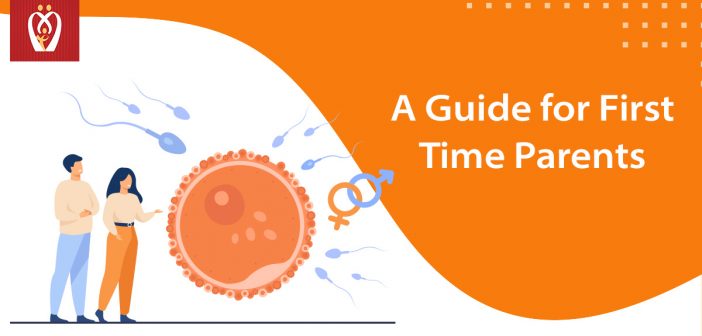Your pregnancy, labour, and delivery are now behind you. It’s time to head home and start a new chapter in your life. It is time to focus on your new born and baby care. However, after you get home, you may feel completely lost! Read more about A Guide for First-Time Parents.
Becoming a parent to a new born is an exciting and joyous time, as you begin a new chapter in your life and gain first-hand experience of parenthood. While this is a time to rejoice, you may also feel apprehensive as you discover more about the changes in your life that are ahead.
Preparation is the key to smoothly transitioning into motherhood and caring for a new born infant. Knowing more about baby care will help you to avoid stressful circumstances and know how to deal with the unexpected events that new parenting inevitably presents.
It’s a frantic and overwhelming time, so receiving help may be a good idea. Speak to the doctors and nurses around you while you’re at the hospital. Many hospitals employ lactation consultants or feeding specialists who can assist you in starting to nurse or bottle-feed your baby. Your baby’s nurses can teach you all of the basic skills you’ll need to take good care of your child. Hire a baby nurse, a postpartum doula, or a responsible neighbourhood adolescent to help you after the birth for a short period of time if you need it.
Your physician or the hospital may be able to provide you with information on in-home assistance and even recommend you to one. Friends and family members are frequently eager to pitch in as well. If you disagree with some points, don’t ignore what they have to say. However, if you’re not ready to host guests or have other reservations, you shouldn’t feel bad about putting certain limitations on their visit. After all, baby care is more important.
Feeding
Parents should expect that feeding their newborns will be a 24-hour activity, despite the fact that their feeding habits may be unexpected. It’s normal for parents to get tired of the constant feedings, but it’s also critical to remember that this is a great time to bond with your new born.
If at all possible, start with breast milk. It’s okay to use a formula if that’s an option you don’t have. Note that juice, water, or any other type of food or liquid is not required for new born babies.
Be ready to feed the baby when the time comes. This can happen eight to twelve times every day. Vitamin D supplements may be beneficial for nursing mothers, so be sure to discuss this with your doctor.
Keep in mind that as a child grows, their feeding patterns may alter.
Parents are often advised to trust their instincts and seek signals of a healthy, growing baby, such as regular weight gain and comfort between meals while expecting a child.
Bonding
The majority of infants are eager to form attachments with their parents as soon as they are brought home. It’s common for parents to be more anxious when their children are in danger. Keep in mind that bonding takes time and cannot be accomplished in one day. It is essential to remember this.
There are several father-child bonding suggestions, such as helping with the birth and recovery, helping with parts of the baby’s bottle-feedings (particularly at night), reading to and singing to the child and bathing the child.
Checklist for a Newborn
It’s easy to feel overwhelmed when you consider baby care and all the things you’ll need to buy before your kid is born. The more basics you create, the less stressful and more fun the process will be as you tick them off as you buy them.
The following are essential baby care products for diapering, feeding, and hygiene:
- Diapering – newborn diaper packages, diaper changing pads, rash ointment, waterproof changing table pads, soiled diaper receptacle, wipes or cotton towels, small thermos to hold warm water for infants under six weeks old
- Nursing pillow, six burp towels, five new born nipples bottles, bottle brush, insulated bottle holder for a diaper bag to warm bottles on the go, nursing bras and pads, and a breast pump are all included in the feeding kit.
- Cleaning supplies include hooded towels, two sets of washcloths, cotton swabs, baby shampoo and body wash, an infant bathtub, a baby nail clipper, soft brush and comb, rubbing alcohol, petroleum jelly, a digital thermometer, bulb nasal aspirator, and mild soap for washing.
Sleeping
One of the most difficult components of baby care is getting the baby to sleep. For a few weeks or even months, most babies don’t sleep through the night. This varies from baby to baby. This period can be difficult for everyone, especially mom and dad, who may be chronically sleep-deprived.
Eating, rather than sleeping, is the primary motivation for most newborns, and parents should expect to feed their child around once every two hours throughout the first two months of life. Even though newborns sleep a lot (up to 18 hours a day, four hours at a time), they have no notion of night and day.
Parents should follow these procedures as soon as possible to help their child establish a more regular sleep schedule:
- Establish a bedtime regimen that you stick to
- Put the infant to bed as soon as he or she begins to nod off. This teaches the baby self-soothing skills.
Welcoming a new born is a truly wonderful experience. It’s combined with baby care responsibilities and hardships, but that doesn’t take anything away from how precious this experience is. Parents must take advantage of all available services as they prepare for both the highs and lows of caring for a newborn.
For all your new born guides and needs, nurturey.com is here to help you!
